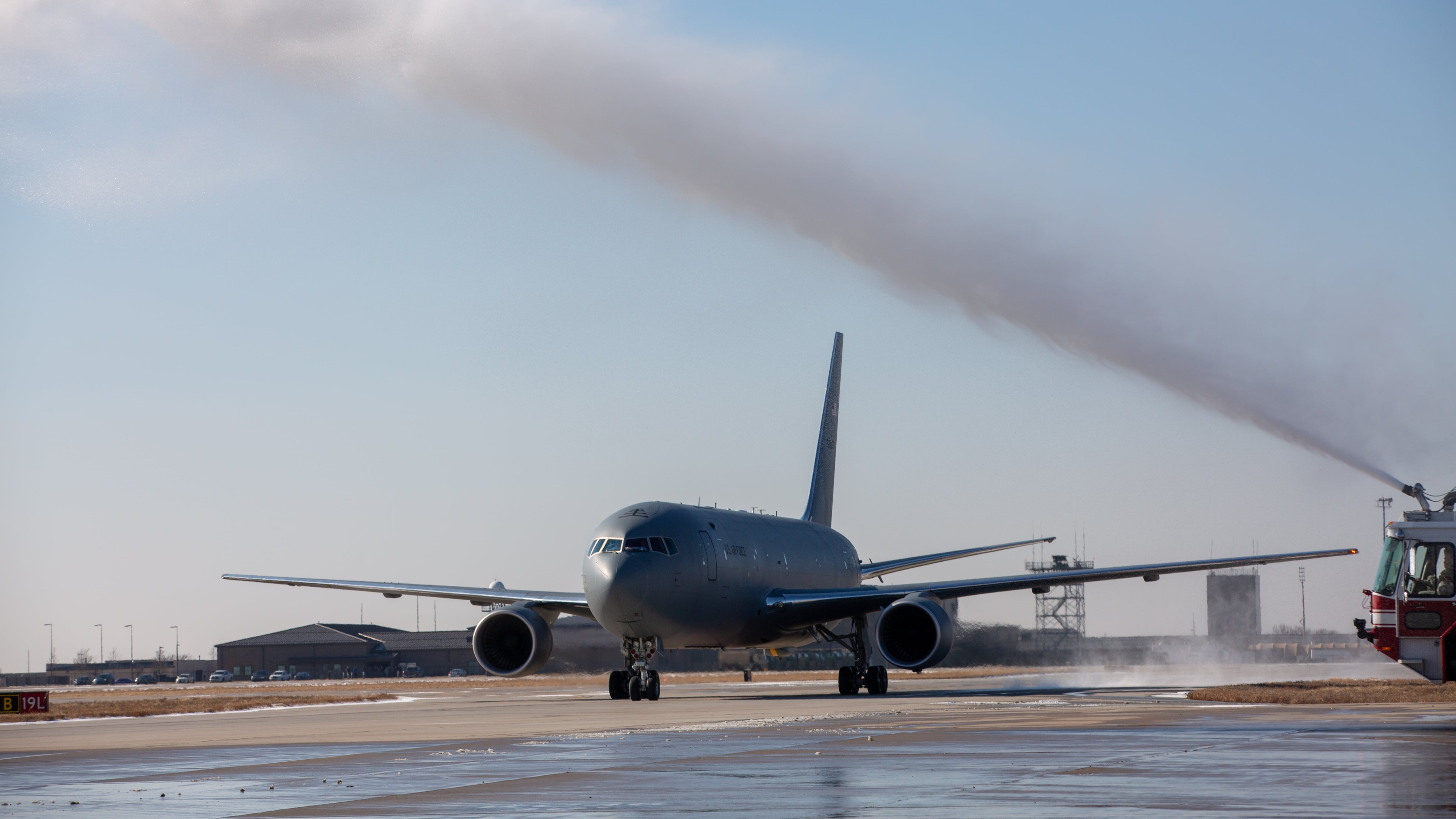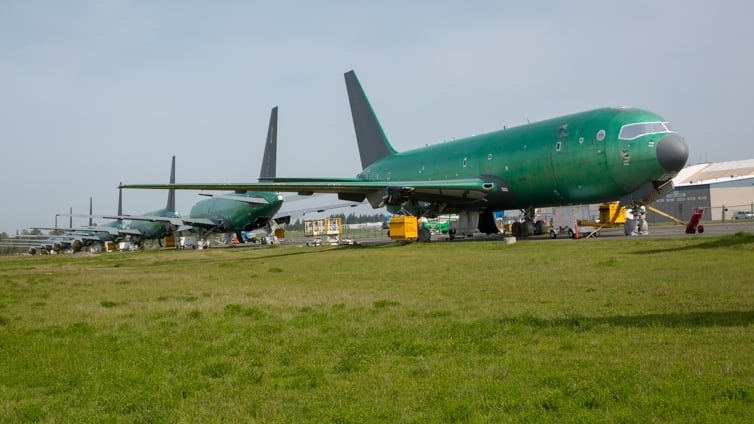ORLANDO, Fla. — The U.S. Air Force will decide today whether to start accepting KC-46 tankers from manufacturer Boeing, after problems with foreign object debris led to a weeklong grounding of flights at Boeing’s production line, the service’s top acquisition executive said Thursday.
The service ordered Boeing to pause flight operations last week due to finding tools and other foreign object debris, or FOD, on KC-46 aircraft moving through the acceptance process, The Seattle Times reported on Feb. 28.
RELATED

Since then, the Air Force and the Defense Contract Management Agency have outlined 13 different process improvements that it expects Boeing to put in place, said Will Roper, the Air Force’s assistant secretary of the air force for acquisition, technology and logistics, during a roundtable at the Air Force Association’s Air Warfare Symposium.
RELATED

“There are two airplanes that are in queue for acceptance. DCMA has been through them. My team has been through them,” he said. “And I have a phone call later today to discuss that within each team before we decide whether we will begin acceptance again.
“If we’re not confident with these two airplanes and the thoroughness with which they have been inspected, then we will keep them on the ground,” he continued. “But the early feedback I’ve gotten is that there’s been a very thorough scrub, and the planes have been flown by DCMA, so I expect that we will not have any hindrance in these two. But that doesn’t mean that we’re going to feel comfortable that the 13 process improvements have been put in place.”
Read more from Air Warfare Symposium 2019!
According to a memo by Boeing’s factory managers obtained by The Seattle Times, eight tools were found in aircraft at Boeing’s Military Delivery Center, and two tools were found inside aircraft that had been delivered to the Air Force.
This was enough to trigger a “level three” alert in the production facility at Everett, Wash. A “level four” would prompt a complete shutdown of that installation.
“This is a big deal,” the memo stated.
The FOD problem is just the latest setback for the KC-46 tanker, which has been beset by multiple schedule and cost overruns over the past several years. The program hit a landmark milestone in January, when the first KC-46 was finally flown from Boeing’s facilities in Everett to McConnell Air Force Base, Kan.
While it is undesirable for FOD to be found inside an aircraft — and often indicates that safety standards have gotten too lax at a production facility — it’s not an uncommon issue, Roper said.
“I don’t want to overblow it,” he said. “If the issue goes away and we have no cause for concern in the future, I’ll just treat it as growing pains. … If we have this issue again, then — it’s already serious — but it will be a much more serious endeavor.”
Boeing spokesman Chick Ramey confirmed the FOD issue, but noted that there is no change to the tanker delivery schedule.
“KC-46 flights were temporarily paused at the Boeing Military Delivery Center this past week, pending agreement with DCMA and Boeing on a plan to resolve a foreign object debris issue,” he said in a statement. ‘”Safety and quality are the highest priority at Boeing. We are working together with the USAF/DCMA and expect to resume flight operations to support training flights today.”
Valerie Insinna is Defense News' air warfare reporter. She previously worked the Navy/congressional beats for Defense Daily, which followed almost three years as a staff writer for National Defense Magazine. Prior to that, she worked as an editorial assistant for the Tokyo Shimbun’s Washington bureau.






